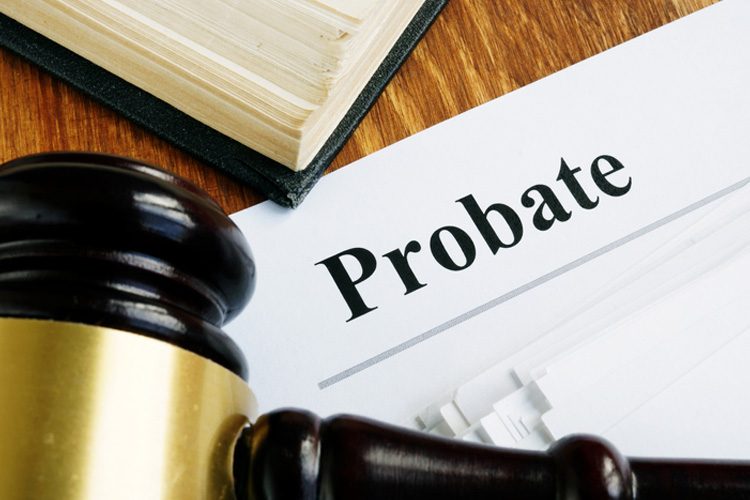
ERISA is federal legislation that sets minimum rules for most private-sector retirement and health programs. It is administered by the Department of Labor and covers both defined benefit and defined contribution plans, such as 401(k).
Before ERISA, employees protected by company retirement programs had limited federal protection. Employers could unilaterally cancel retirement and pension commitments with no legal consequences.
What Led To The Formation Of ERISA?
The failure of the automaker Studebaker spurred the passage of this significant retirement reform in the United States. The company’s collapse in the post-World War II period was fueled by labor unrest and financial mismanagement, and it closed its production factory in South Bend, Indiana in 1963.
After the mill closed, nearly 70% of Studebaker employees were left without their promised retirement benefits. Roughly 4,000 current and past employees in the pension plan who have worked for the company for more than 20 years earned only about 15 cents for every dollar they expected. Almost 3,000 employees with shorter tenures received nothing.
How Does ERISA Work?
ERISA established minimal rules that retirement and healthcare plans must follow to safeguard workers and plan beneficiaries. Employers are not required to offer plans under ERISA; it simply sets the rules if they do.
When it comes to managing the assets of client accounts, ERISA holds plan managers to a higher level.
Here are some of the areas where ERISA legislation sets rules for employers and plan administrators, while not exhaustive:
- Reporting. The federal government holds plan administrators accountable through rigorous annual reporting.
- Protection. The law outlines how retirement plan funds are safeguarded and how plan participants can have their complaints resolved.
- Participation should be planned. The law establishes anti-discrimination rules for plan members. High earners, for example, are typically unable to contribute a considerably higher percentage of their earnings than low earners.
- Fiduciary obligations. The legislation requires plan administrators to operate in the best interests of their employees, not their own.
- Disclosure of information. Participants in all plans must get standardized information about their plans.
ERISA And Retirement Plans
Most private-sector, employer-sponsored retirement plans, such as 401(k)s, pensions, profit-sharing plans, and individual retirement accounts (IRAs), such as SEP IRAs and SIMPLE IRAs, are covered by ERISA’s rules.
Employers and plan administrators must comply with the following ERISA requirements:
- All plan members should get particular information, such as eligibility, fund matching requirements, vesting regulations, and guidelines for withdrawing funds and collecting spousal benefits.
- Act in the best interests of the investors, not their own. According to ERISA, plan administrators may be held liable for plan losses caused by mismanagement.
Furthermore, ERISA retirement plans are often more creditor-protected than non-ERISA plans. This implies that if you declare bankruptcy, your retirement funds will most likely be safe in an ERISA plan.
However, not all employer-sponsored plans must adhere to all or parts of ERISA. Government employee plans and some nonprofit plans, such as 403(b) plans, are examples.
However, just because a plan isn’t governed by ERISA doesn’t indicate it’s dangerous or will be mishandled. Your employer may have perfectly good reasons to provide you with a non-ERISA plan.
Nonprofits, for example, may choose to opt out of ERISA to save on the expenditures and administrative effort that ERISA plans entail. Furthermore, if you earn a lot of money, your employer may offer you a non-ERISA plan to evade ERISA non-discrimination policies while allowing you to save more for retirement.
If you’re concerned about the safety of non-ERISA plan investment options, you can mitigate your risk by selecting a low-fee index fund inside your plan.
ERISA And Healthcare Plans
ERISA also oversees some of the most far-reaching healthcare reforms in the United States. According to the most recent numbers from the Department of Labor, ERISA-governed healthcare plans cover more than 136 million people in the United States.
ERISA applies to nearly all private-sector healthcare plans. However, the key term to remember when it comes to ERISA and healthcare is “voluntary.”
ERISA applies to healthcare plans that have obligatory enrollment, receive employer contributions toward premium expenses, or specify how assets in the plan must be spent. Plans lacking these regulations, on the other hand, would not be subject to ERISA rules.
ERISA-governed healthcare plans, like retirement plans, must lay out benefits and eligibility requirements. ERISA healthcare plans, on the other hand, must:
- Premiums, co-pays, provider networks, and deductibles should all be disclosed.
- Describe the claims process.
- Include explicit language addressing participant privacy mandated by HIPAA, as well as plan portability (including COBRA coverage, which continues insurance coverage when an employee leaves an employer).
- Cover 48 hours of in-hospital post-birth treatment (72 hours for C-sections).
The Affordable Care Act (ACA) gave healthcare plans, including those controlled by ERISA, new protections by:
- Employers with 50 or more employees are required to provide healthcare coverage.
- Ensure that all pre-existing conditions are covered equally.
- Allowing dependent children to remain on their parent’s health insurance plan until they reach the age of 26.
- Limiting out-of-pocket expenses.
Conclusion
While you probably don’t need to know much about ERISA, it’s useful to know that it protects the vast majority of your most valuable employer benefits.
ERISA is a statute that has your back — even if it’s not part of your day-to-day — from preserving your hard-earned funds in your employer-sponsored retirement plan to crystal clear disclosures on all the moving components of your healthcare plan.
To know more, contact Hawaii ERISA Attorney now!
RELATED ARTICLES
Recent Posts
- Major Theft Ring Busted: Over $200,000 in Stolen Lego Sets Recovered in Eugene, Oregon
- Judge Denies Texas’ Bid to Shut Down Migrant Shelter Network in El Paso
- Single Mother in Memphis Seeks Help for Troubled Son Amid Rising Concerns
- California’s Proposition 47 Reform Sparks Intense Political Debate Over Public Safety
- U.S. Man’s Social Security Benefits Denied Over Citizenship Confusion
Categories
Our Supporters
Gold Supporters
Christopher Simon – Atlanta Truck Accident Lawyer
Skiver Law Firm – Phoenix Truck Accident Lawyer
Winer, Burritt & Scott, LLP – Los Angeles Clergy Abuse Law Firm
Michael E. Fenimore P.A. – Pensacola Car Accident Lawyer
Pillsbury & Coleman, LLP – San Mateo Long Term Disability Lawyer
The Law Office of Randall J. Wolfe, P.C. – Oregon City Personal Injury Lawyer
Davies Hothem Injury Law – Buford, GA Car Accident Attorney
Houston Federal Criminal Defense Attorney
Darrow Law Firm – Houston Federal Crime Lawyer
Kansas City Personal Injury Lawyer
Atlanta Truck Accident Attorney
Aitken *Aitken* Cohn Trial Lawyers – Santa Ana Personal Injury Attorneys
Dawson Law Group- Portland Personal Injury Attorneys
CT Mediation Center- New Haven Family Law Attorney
Little Rock Personal Injury Lawyer
Katy Car Accident Lawyer
Franklin Divorce Attorney
Palermo Law- Long Island Personal Injury Lawyer
Dan Rose – San Francisco Car Accident Attorney
Taylor Siemens – Liberty, MO Personal Injury Attorneys
Pfeifer Law Firm – Little Rock Car Accident Lawyer
Walkup, Melodia, Kelly & Schoenberger – San Jose Car Accident Attorney
Solomon, Dwiggins, Freer & Steadman – Las Vegas Business Litigation Lawyer
Roane Law – Asheboro NC Car Accident Lawyer
Dorsch Law Firm – Overland Park Estate Planning Attorney
The Tennessee Sledgehammer – Hermitage, TN Car Accident Lawyer
Cook Law Group – Gainesville, GA Car Accident Lawyer
Simon Bridgers Spires – Atlanta Personal Injury Lawyer
Injury Law Associates – Kansas City Motorcycle Accident Lawyer
Potts & Potts – Honolulu Personal Injury Attorney

